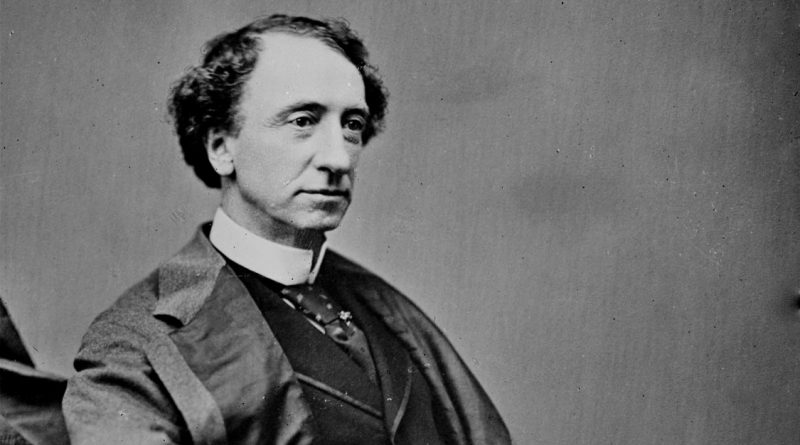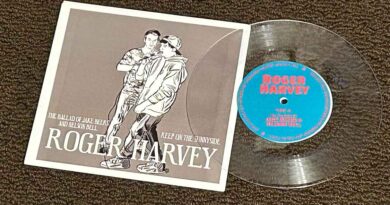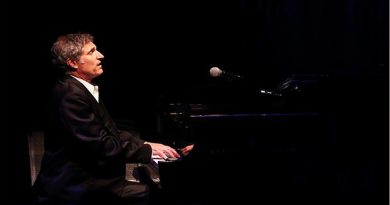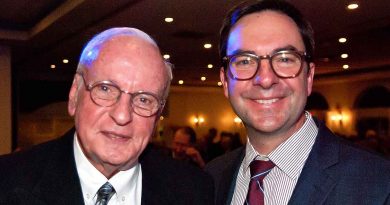This Week In Art/Culture/Entertainment
By John Swartz
Saturday is a day Sleep Country has been overlooking for the entire history of their business. It’s Sir John A Macdonald’s birthday and Sleep Country has not had one Macdonald’s Birthday Mattress Sale I can recall.
The Orillia Museum of Art and History hasn’t forgotten our first prime minister. They’ve had a celebration every year of their 20 year existence. In fact, the birthday dinner is two years older than the OMAH.
Often treading the fine line between educating and humour, though in recent years not so much humour as when Dick Johnston used to be the emcee of the evening, the organizing committee strived to get nationally known keynote speakers, most often from the conservative side of the aisle – which proves you can be conservative and be funny – but in recent years the emphasis has been more toward the educational side.
This year, the keynote speaker is Dr. Kevin Kee. He’s the dean of the faculty of arts at the University of Ottawa. The title of his speech is Building Knowledge and Rebuilding Trust in the Digital Age. He won’t specifically be speaking about Sir John A., but about how digital technology is useful for researchers, and for presenting the fruit of their work.
How do I know? I spoke with him about many things, including what he was going to say Saturday night at Hawk Ridge Golf Club at the annual Sir John A. Macdonald Dinner. What did I learn? You can’t trust digital technology.
How did I learn that? Before he called, I had a premonition something would go wrong with the recording of our conversation, just as it did with an interview I had with Gord may years ago. So, colour me surprised to find that one recording of the many I had not off-loaded to my computer from the phone didn’t take. It’s only the important stuff that happens to, huh? (If I spoke to you recently, I don’t mean our conversation is unimportant, but most of those calls are not the kind of thing I need to reproduce accurately for public consumption, even though all my calls are important in other ways.)
So, here goes. I’m trusting my short term memory to write about what we spoke of, of course, omitting any direct quotes.
Dr. Kee is the dean of the arts faculty at the University of Ottawa. Most of his career has been about the intersection of digital technology and history. In fact, his first job out of school (as a student) was with the National Film Board at a time just when the internet became a thing. The NFB wanted to figure out how to stay relevant in the face of what the internet promised, and proved to be.
On the research side, digital technology has been great. He cited the example of going through the documents accumulated (400,000) under the Lyndon B. Johnson presidency, through to Barack Obama where there were more than 4 million emails alone. His point was a researcher could start today and maybe by the end of their career be able to read through 5 or 10 percent of that kind of trove of information to get some of what they were looking for.
I immediately thought of the ability to digitize documents, which many libraries and museums have been doing, as pdf documents, allowing people to key word search for what they are looking for. You can zero in on what may be relevant, depending on one’s ability to pick the right keywords. Dr. Kee agreed that was one of the main tools of research these days.
I suspect there is still a long way to go digitizing all historical documents, and despite the millions of Youtube videos, a long way to go digitizing everything on video tape or film.
On the representation side there is an established new way to present historical information. Again, Youtube is your friend, and there are podcast accounts and investigations into history. But it doesn’t end there. He used the word hologram, or holograph, several times. More on that.
What lead Kee down the path of establishing study of history in the digital age came to him early on. He spoke of how dry (and light on detail) teaching history in high school was from his perspective, versus how much more there is to know on any subject, and how engaging and entertaining history can be. Of course, learning history is important, or you could end up doing something stupid like engaging in war for all the wrong reasons.
Think about it. How many of you left high school with more than knowledge Macdonald was our first prime minister and had something to do with getting the transcontinental railroad built? Did you go off to your first job with the knowledge Macdonald loved to have a drink now and then, now being lunch, then being before dinner, and often all the minutes between; that you can find references to his drinking in Hansard (in case you forgot, Hansard is the record of parliamentary proceedings). Of course you didn’t know it until years after escaping high school.
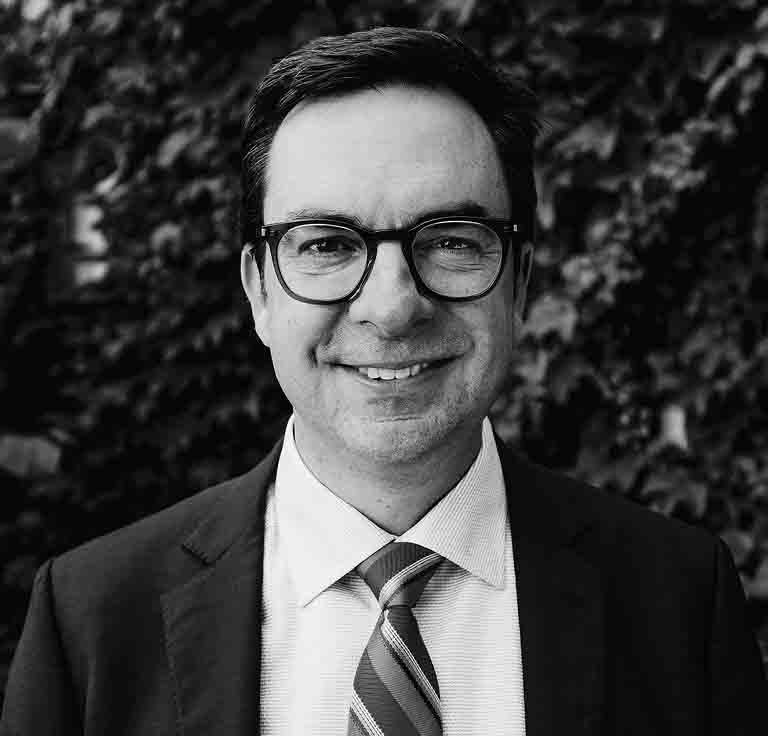
Kee’s spark of revelation was a video gaming, Civilization specifically. Kee said who would have thought a video game could teach history, but the story within that game was based on history, real history, and the game was most popular with young kids, who were getting history lessons just by playing the game.
It’s kind of the same way the Rock Band game didn’t produce any Eddie Van Halens or Neil Pearts, but it did produce a generation of people who never heard a note of the finest music ever produced (70s rock and roll) yet they could tell those of us who lived the first time around all about it.
Kee said writing is still the primary means of transmitting information, whether by book, essay, or otherwise, but historians need to be thinking about the newer methods of reaching an audience (which implies learning how to be entertaining).
Turning to holograms, he spoke of a project the University of Southern California’s Shoah Foundation Visual History Archive has at the Los Angeles Museum of the Holocaust. Holocaust survivors were recorded, each answering hundreds of questions. The end result is a person can sit down and have a conversation with a survivor who isn’t physically present. Much like with Alexa, you ask a question and a computer returns the best answer from a survivor you can see and hear as if in real time. Kee said it brings a level of emotion to history, actually seeing someone who lived an event telling you about it, and it kind of sticks better than dry words on paper. It’s also a way to create authentic, more reliable historical account.
Kee’s point is museums need to be thinking about stuff like that, and video and podcasts when putting together exhibits and programs in order to reach younger generations. It’s not a dumbing down as some of us olde pharts might think. This is how learning is done now, and, I would argue, its much more effective, certainly more engaging, and certainly a lot more entertaining.
There’s a problem though, and Kee will speak about it too. Trust. Who are you going to trust in an age where artificial intelligence has already demonstrated real people can be presented visually and aurally doing and saying things entirely made up, in a manner that is indistinguishable from other, usually video, depictions of that person?
Kee said historians (and journalists, I believe) need to develop trust as sources. He used the phrase local trust a few times. To that point, Tip O’Neill, former speaker of the U.S. House of Representatives (you know, the purveyors of impeachment) was famous for saying, “all politics is local.” So is trust. One of Kee’s talking points is local institutions have to take care to develop local, public trust. I would add, the same goes for journalists and at City Hall.; more important, maintain trust by not doing things to damage any earned trust.
You can hear him in person by going to the dinner Saturday night, and there are still some tickets left. You have to call OMAH, 705-326-2159, to get them.
The reason why there are still tickets left when for 20 years this event sold out in December is because the dinner moved to Hawk Ridge last year and there are more seats to sell. Last year, OMAH raised $17,000 just from this event. People keep coming back because it’s a great night out (go ahead, get a ticket and try to prove me wrong; you can’t on this one unless you are terminally bored by everything).
I am so happy I got through this from memory, I’m going to take a break and have a coffee. I’d have something else, but the Crown Royal seems to have gone AWOL from the cupboard. I’ll be right back.
A Really Happy New Year
Imagine finding out something you did last year got recognition in a best of list.
These are some of the musicians who made the Tinnitist ‘s best Canadian albums of the year: Begonia, Broken Social Scene,Leonard Cohen,Jim Cuddy, Danko Jones, Lee Harvey Osmond, Corb Lund, The New Pornographers, Northern Pikes , and the Rheostatics, Robbie Robertson, Sum 41, Tegan & Sara, Whitehorse, and Hawksley Workman. I only gave you the names you’d recognize right away, there are more on the list.
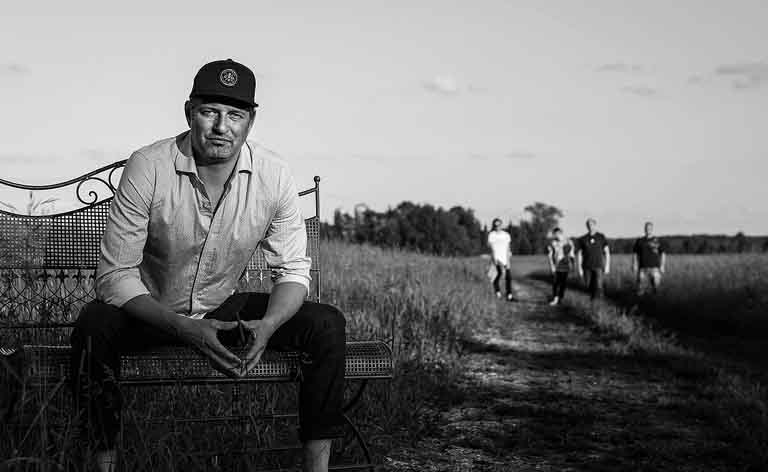
The Tinnitist is a website about new music. It’s really SUN Media’s national music critic and freelancer Darryl Sterdan. What he says about new music carries some weight in this country. So, if you were Sean Murray, imagine how you’d feel if one morning you found out your album, Reay’s Butterfly Tongue Revisited, was highlighted one of the two best albums of the year?
I’m going to guess my missing Crown Royal could figure in. Who could have predicted, even by Sterdan’s earlier review, Sean’s album would be considered for such an honour? When you see something like this, you have to feel good about it.
You can follow the link above to listen to the album, or buy it, go ahead, buy it, and you can also watch the videos here.
So Here’s The Deal
If you have almost completed and have an outline of where your historical book or project is going to end up, and it can be completed soon, you can submit an application to the Orillia Museum of Art and History’s Mulcahy Publishing Initiative. Its a program to get your story published. OMAH will select one submission and put their resources behind publishing preparation, a limited print run and promotion. Historical fiction counts, as do poetry and children’s books – but they have to be about local history. Go here and look for the pdf links for more information about what qualifies and how to submit. You have until January 15.
January 15 is history speaker’s night and Dr. Harry Hall will be in to talk about his life as a doctor. He practiced for 54 years in Orillia, and he also took his black bag around the world. The event starts at 7 p.m. January 26. OMAH hosts Storytelling Orillia’s Side By Each monthly. This time guest speakers Ronda Hales and Stephanie Boyd (U.S.A. Women’s Hockey Team) will talk about women’s hockey a the 2 p.m. event.
![]()

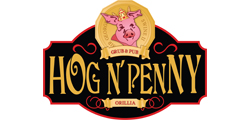

![]()
The Shorts
* With Australia on fire (Midnight Oil’s Beds Are Burning seems appropriate for background music) Zain Campbell felt moved to write a song, We Gotta Do More, and put a video together. He’s using it as an opportunity to connect people with disaster relief organizations. As an aside, technically and musically, good job with it Zain.
* The Mariposa Folk Festival audition concert doesn’t happen until April, but if you have a band, or know someone in a band, even if they don’t have a band and do their thing solo, send them here for details how to get an invite to try out. The deadline is Feb. 23.
* The Jubilee Chorale is rehearsing at a new venue, Sundial Lakeview Retirement Residence, and it’s a good time to dust off your pipes and join them. You’ve got time to warm up, their next concert is in May. Check them out every Wednesday between 7 and 9:15 p.m.
* Hibernation Arts is opening up space in the gallery for work by young artists, which is defined as under 40-years-old. The show opens January 11; also opening at 1 p.m., January 11 is a collection of work by Tammy Henry.
* Jim Harris is booking musicians for the Farmers’ Market 2020 season. Shoot him an email to jimharris@vianet.ca .
* Coming up… the Hog ‘N Penny has trivia night with Bill Dunlop every Thursday evening; Christina Hutt is in Friday night; Jakob Pearce is in Saturday night… the Brownstone has Club Silencio, High Road Pilots, and Mount Mural playing Saturday night… Steph Dunn is at Tailwinds on Sunday and at Lake Country Grill Jan 15…the annual Mudmen concert at the Opera House is Feb. 1; the Banff Mountain Film Festival is Jan. 9 to 11 (this sells out every year – 3 dates this time around); the Simcoe Contemporary Dancers have a program called Confluence Jan. 17… The Jazz Byrds play Sanafir every Saturday evening… Three Crows Speak gallery has Liz Schamehorn’s Sketches of Florence Series opening Saturday with a reception from 1 to 3 p.m.
(Photos Submitted)

